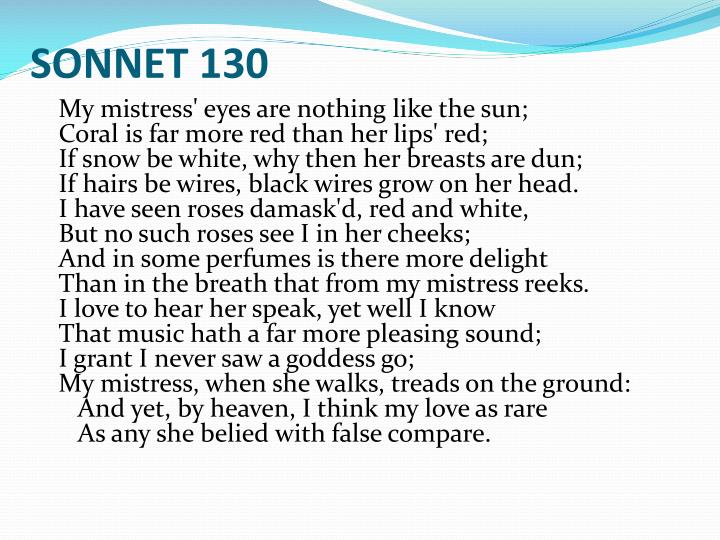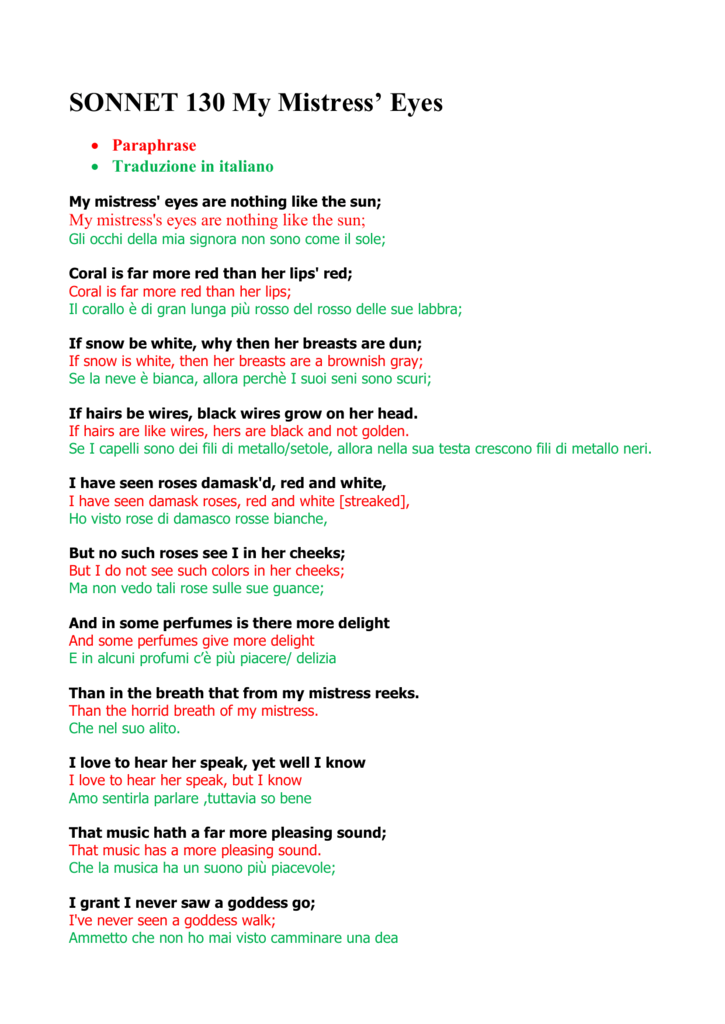
The poet seems at times to advance a double standard on the issue of faithfulness: he is unfaithful himself, yet he condemns, is even surprised by, the unfaithfulness of others. The themes of selfishness and greed are prevalent throughout the sonnets as a whole, emerging most perceptibly in the narrator's hypocritical expectation of faithfulness from the fair lord and the dark lady.

If we take the angel of sonnet 144 to be the narrator's fair lord, we see this contrast clearly: "To win me soon to hell, my female evil / Tempteth my better angel from my side / And would corrupt my saint to be a devil / Wooing his purity with her foul pride." It might be argued that this very incompatibility between the two distresses the narrator most as he learns of their affair. The poet seems to glorify the former while condemning the latter his heart is at odds with his libido. Meanwhile, the dark lady sonnets are replete with sexual imagery, implying an attraction based largely on carnal lust. The lack of explicit sexual imagery in the fair lord sonnets has led most scholars to characterize this infatuation as an example of Platonic love, i.e., a form of amorous affection bereft of any sexual element. While the narrator of the sonnets is clearly infatuated with both the fair lord and the dark lady, the language he uses to describe these infatuations shows them to be of disparate natures.

The divide between the fair lord sonnets and the dark lady sonnets is also a divide between two forms of interpersonal attraction.

" such an interpretation fits well with the idea that Shakespeare is in fact the narrator of the sonnets, as extant portraits of Shakespeare show the poet to have been balding in his later years. It has also been suggested that the poet implies that he is balding in sonnet 73, where he writes, "That time of year thou mayst in me behold / When yellow leaves, or none, or few, do hang / Upon those boughs. The theme resurfaces throughout the sonnets in the narrator's various descriptions of himself as an aging man: "But when my glass shows me myself indeed / Beated and chopp'd with tann'd antiquity" (sonnet 62) "And wherefore say not I that I am old?" (sonnet 138). "So long as men can breathe or eyes can see / So long lives this and this gives life to thee." But the ravages of time return to haunt the narrator: in sonnet 90, the poet characterizes time as a dimension of suffering, urging the fair lord to break with him "if ever, now" "Give not a windy night a rainy morrow," he writes, pleading with him to end the desperation of hopeful unrequited love. By sonnet 18 the poet appears to have abandoned this solution in favor of another: his verse.

How much more praise deserved thy beauty's use / If thou couldst answer 'This fair child of mine / Shall sum my count and make my old excuse' / Proving his beauty by succession thine!" The poet is lamenting the ravages of time and its detrimental effects on the fair lord's beauty, seeking to combat the inevitable by pushing the fair lord to bequeath his exquisiteness unto a child. In sonnet 2, the poet writes, "When forty winters shall beseige thy brow / And dig deep trenches in thy beauty's field. Shakespeare's sonnets open with an earnest plea from the narrator to the fair lord, begging him to find a woman to bear his child so that his beauty might be preserved for posterity.


 0 kommentar(er)
0 kommentar(er)
